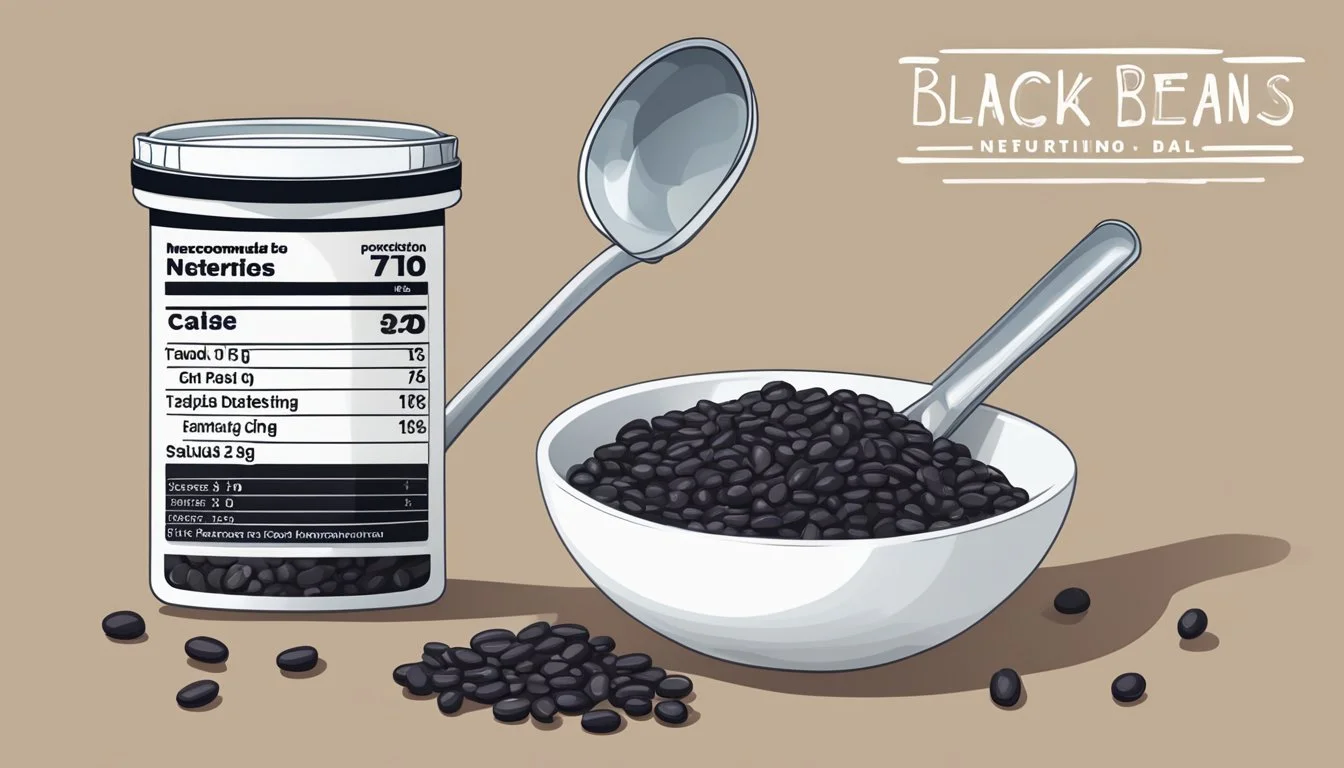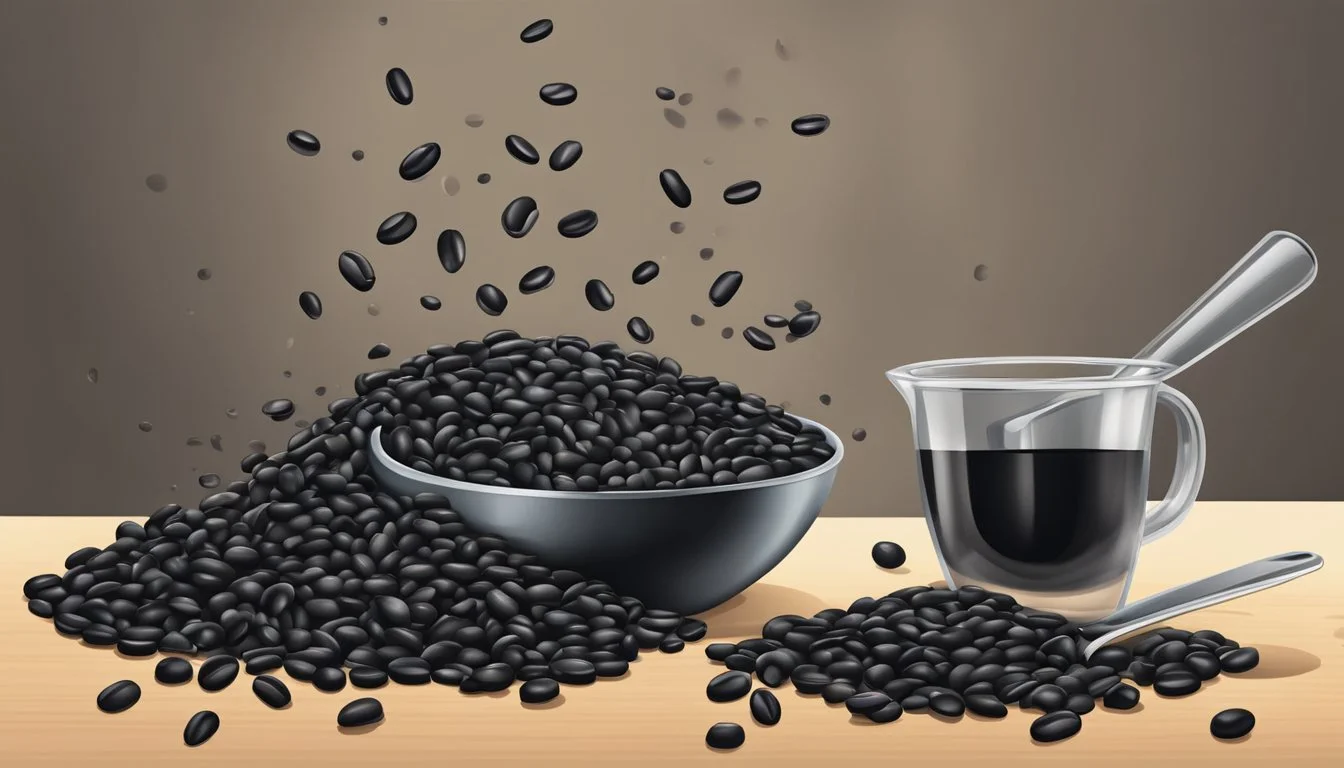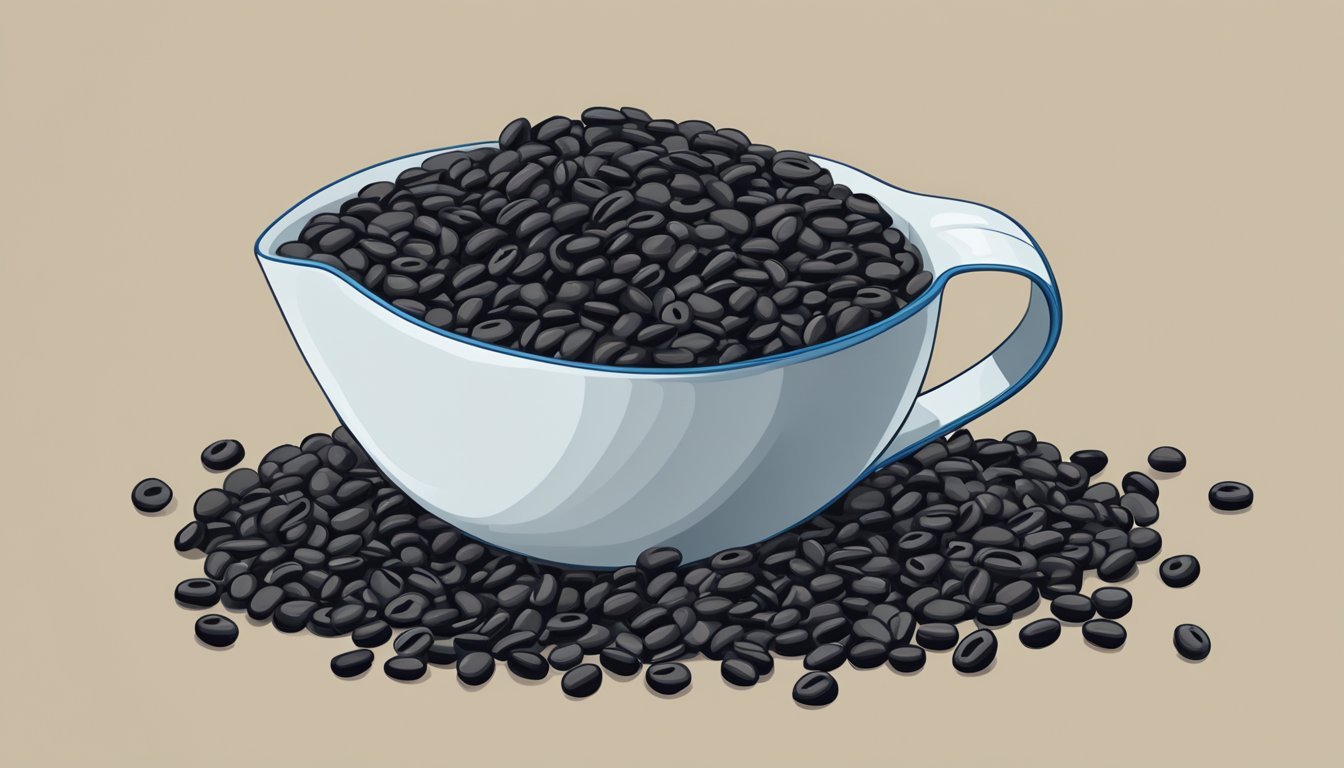How Much Black Beans Per Day Is Too Much?
Understanding Healthy Limits
Black beans are a nutritious addition to a diet, boasting a rich content of plant-based protein, fiber, and antioxidants. They are commonly recognized for their health benefits, which include supporting heart health and potentially reducing the risk of chronic diseases like type 2 diabetes. Their fiber content, particularly soluble fiber, is known to aid in digestive health and can contribute to weight management by promoting a feeling of fullness.
However, consuming black beans in excessive quantities may lead to digestive discomfort, as they can cause gas, bloating, and diarrhea. Moderation is key, even with healthy foods. An optimal amount of black beans has not been firmly established, but incorporating them as part of a balanced diet without overindulging is advisable to harness their nutritional benefits without adverse effects. Consuming roughly two cups of black beans per day is considered a safe amount for most individuals, taking into account their overall dietary intake.
When incorporating black beans into one's diet, it is essential to consider the cumulative intake of nutrients from other foods to maintain a balanced nutritional profile. This ensures that one can enjoy the health benefits that black beans offer without experiencing potential drawbacks from excessive consumption.
Nutritional Profile of Black Beans
Black beans are recognized for their rich nutritional value, providing an array of essential nutrients while being low in fat and high in dietary fiber and protein.
Macronutrients and Calories
One cup of cooked black beans contains approximately 227 calories. Regarding macronutrients, this portion provides around 15 grams of protein which makes them a significant plant-based protein source. Alongside protein, they contain 0.9 grams of fat and 40.8 grams of carbohydrates.
Vitamins and Minerals
Black beans are a significant source of several vitamins and minerals. They provide 18% of the Daily Value (DV) of folate from a half-cup serving, essential for red blood cell formation and proper neural tube development during pregnancy. They also contain 2.3 mg of iron (13% DV), which is crucial for oxygen transport in the blood. Other essential minerals found in black beans include magnesium, potassium, zinc, and phosphorus. For vitamins, black beans provide vitamin B6 and thiamin, though specific percentages vary depending on serving size.
Fiber Content and Types
A standout feature of black beans is their high dietary fiber content, with one cup of cooked beans delivering about 15 grams. This fiber is predominantly of two types: soluble and insoluble, both contributing to digestive health, regulating blood sugar levels, and assisting in maintaining a feeling of fullness.
Health Benefits
Black beans are acclaimed for their rich fiber content and presence of beneficial phytonutrients, contributing to various aspects of dietary health. They offer a spectrum of benefits from improving cardiovascular health to aiding in digestion and weight management.
Cardiovascular Health
Black beans support heart health through their ability to potentially lower bad LDL cholesterol due to their soluble fiber content. They contain heart-protective antioxidants, polyphenols, and anthocyanins that may help reduce inflammation and improve blood pressure, all contributing to less stress on blood vessels.
Blood Sugar Regulation
The fiber in black beans promotes blood sugar regulation, preventing spikes and crashes. It does this by slowing the absorption of glucose into the bloodstream, which is particularly beneficial for individuals with diabetes or those at risk.
Digestive Health
High in fiber, black beans promote digestive health. They can help prevent constipation and improve overall digestion. Furthermore, they contribute to a sense of satiety, which can prevent overeating and assist in maintaining a healthy gut.
Weight Management
Black beans are an ally for weight management. The high fiber and protein content can lead to increased satiety, reducing overall calorie intake. These factors, in conjunction with a balanced diet, may support weight loss and prevent obesity.
Cancer Prevention
The phytonutrient known as quercetin found in black beans is linked to cancer prevention properties. Alongside this, antioxidants in black beans help fight inflammation and oxidative stress, which are associated with cancer risk reduction.
Recommended Daily Intake
When incorporating black beans into one's diet, it is essential to consider the recommended intake of legumes for optimal health benefits without overconsumption.
Portion Sizes and Frequency
Individuals should aim for a balance when eating black beans, as they are nutrient-dense legumes that provide significant dietary fiber, protein, and other vital nutrients. A typical serving size is about 1/2 cup of cooked beans. Black beans specifically contain approximately 8 grams of dietary fiber per serving, contributing to the American Heart Association’s recommended 25 to 30 grams of fiber per day.
Consuming black beans in moderate amounts can be a healthful practice. For most adults, eating up to one to two servings of legumes like black beans per day is considered safe and beneficial. Regular consumption as part of a balanced diet can support digestive health and blood sugar control due to the high fiber content.
However, one must be cautious about the sodium content if consuming canned black beans. It is advisable to choose low-sodium varieties or to rinse the beans thoroughly to reduce sodium intake. Eating too much sodium can lead to adverse health effects, so keeping an eye on this is crucial for maintaining a healthy diet. There is generally no need to worry about sugars in black beans, as they do not contain added sugars and have a low glycemic index.
Risks and Considerations
While black beans offer numerous health benefits, certain individuals may need to consider potential risks and how much they consume. These considerations are especially pertinent for individuals with specific health conditions, dietary sensitivities, and those on certain medications.
Digestive Issues and Gas
Black beans contain oligosaccharides, a type of carbohydrate that the human body cannot fully break down. The fermentation of oligosaccharides by gut bacteria often leads to gas and bloating. Consuming black beans in moderation can help mitigate these issues.
Suggestions to reduce gas:
Increase bean intake gradually to allow the digestive system to adapt.
Thoroughly rinse canned black beans to remove some oligosaccharides.
Consider digestive aids designed for promoting better bean digestion.
Chronic Diseases and Allergies
Individuals with chronic diseases like diabetes should monitor their black bean intake due to the high fiber and carbohydrate content, which can influence blood sugar levels. Black beans are generally beneficial for heart health but should be consumed in appropriate quantities.
Considerations for diabetes and heart disease:
Balance black bean consumption with other sources of protein and fiber.
Monitor blood sugar levels to see how black bean intake affects individual diabetes management.
For those with allergies, it is important to note that black beans could cause an allergic reaction, although bean allergies are less common.
Interactions with Medications
Certain components in black beans, like lectin, could interact with some medications. Lectins are proteins thought to disrupt cellular communication, and they may affect the body's response to medications.
Key points for medication interactions:
Consult healthcare providers regarding bean consumption if taking medications for chronic conditions.
Be particularly cautious if using medications that slow intestinal movement, as bean fiber could exacerbate any related side effects.
Types of Black Beans
Black beans, a staple in many diets, come in different forms, each with their unique nutrient profiles and culinary uses.
Canned vs. Dried
Canned Black Beans are prized for their convenience as they are pre-cooked and ready to serve. They often contain added salt for preservation, which can increase their sodium content. To reduce sodium, one can rinse canned beans before use.
Dried Black Beans, on the other hand, require soaking and cooking, a process that allows for better control over the texture and seasoning of the beans. They are a natural choice for those looking to minimize their intake of additives and preservatives.
Varieties and Nutrient Differences
Black beans, also known as turtle beans, are available in a few varieties that can differ slightly in taste and nutrient content.
Variety Protein Fiber Antioxidants Turtle beans High High Rich in anthocyanins
Each type of black bean brings a wealth of nutrients including protein and fiber, essential for maintaining a healthy diet. While all black beans are nutrient-dense, the precise levels of minerals such as iron, magnesium, and zinc can vary slightly among the different varieties.
Culinary Uses
Black beans offer a rich, satisfying flavor and a creamy texture that enhances many culinary dishes. They are versatile legumes that can be featured in various recipes ranging from hearty chilis to refreshing salads.
Cooking and Preparation
To prepare black beans, one must decide between using canned black beans for convenience or soaking and cooking dried beans for a more economical and less processed option. Soaking dried black beans overnight can lessen cooking time and improve their digestibility. When cooking, black beans must be simmered until they reach a soft consistency, which can take anywhere from 1 to 2 hours.
Flavor enhancement: Opting for additions like onions, garlic, and spices can greatly enhance their deep, earthy flavor.
Soaking: Reduces substances that can cause digestive discomfort and shortens cooking time.
Incorporating into Diets
Black beans are a staple in vegan diets due to their high protein content, but they are equally appreciated in various diets for their fiber and nutrients.
Salads: Black beans add color, texture, and nutrition to salads.
Chilis and Soups: They contribute a hearty element and thicken the broth they're cooked in.
Texture: Black beans hold their shape well, making them ideal for adding a pleasant bite to numerous dishes.
Incorporating black beans into one's diet is relatively simple given their compatibility with a variety of ingredients and their ability to absorb flavors beautifully.
Expert Advice
When determining the ideal quantity of black beans to consume daily, one should consider the health benefits and the body's dietary needs. Registered dietitians can provide personalized guidance.
Consulting Registered Dietitians
Consulting with a registered dietitian is crucial for anyone looking to incorporate the right amount of black beans into their balanced diet. Dietitians can assess individual dietary needs and recommend an appropriate daily intake. Black beans, being a rich source of dietary fiber, are beneficial for heart health and blood sugar control. As a plant-based protein, they are a healthy inclusion in one's diet, particularly for those seeking lean protein options.
Additionally, black beans are part of the pulses family and can contribute significantly to a high-fiber diet. However, it is essential to tailor the consumption of these beans to one's personal nutritional requirements and any existing health conditions. This ensures that individuals reap the benefits of black beans without experiencing any adverse effects from excessive intake.









